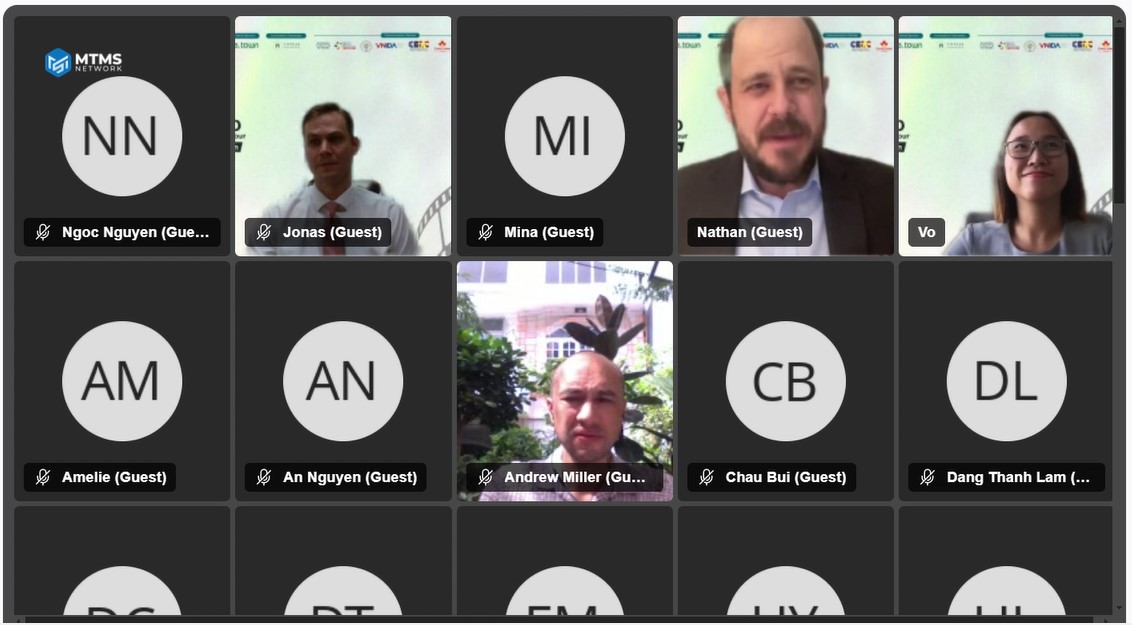As businesses, governments, and organizations increasingly adopt sustainable practices, effectively communicating these efforts is essential to advancing toward a greener future. The challenge lies in determining how best to convey these initiatives to maximize their impact and share meaningful values.
Bridging the gap in sustainability communication
Sustainability communication involves the strategies and messages companies use to convey their sustainable practices, initiatives, and goals. Whether through marketing, workshops, videos, or documentary films, the objective is to engage stakeholders in the journey toward sustainability by spreading these important messages.
In Vietnam, sustainability communication is still evolving. Terms like Corporate Social Responsibility (CSR) and Environmental, Social, and Governance (ESG) are often confused, as highlighted by Van Tran, Associate Director of Communications and Sustainability at AstraZeneca Vietnam, during a recent webinar hosted by Dear Our Community on how top sustainability leaders communicate their impact.
While many workshops, webinars, and forums have been organized to promote sustainable development and address its challenges, there is still a need for greater collaboration to establish a consistent and impactful approach to sustainability communication.
Experts point out that many businesses face budget constraints when investing in sustainability efforts and communications. This can result in underfunded initiatives and fragmented messaging. Additionally, greenwashing—where companies make exaggerated or misleading environmental claims—can further erode trust. Inconsistent or deceptive sustainability communications not only diminish credibility but also make it difficult to build authentic relationships with consumers and stakeholders.
Despite these challenges, a growing number of businesses and organizations in Vietnam are showing interest in sustainable development. With the global market increasingly adopting mechanisms to support net-zero emission commitments, Vietnamese companies are under mounting pressure to take meaningful action on sustainability and communicate their efforts credibly and effectively.
Effective ways to convey sustainable messages
Sustainability efforts can be communicated through various formats, such as films, videos, reports, and news articles. However, the effectiveness of these messages often depends as much on the delivery method as on the content itself.
While data and reports are essential, the narratives behind these achievements can resonate strongly with audiences. Film director Nathan Havey demonstrated this in his documentary Beyond Zero, which tells the story of Ray C. Anderson, founder and chairman of Interface Inc., and his mission to eliminate the company’s negative environmental impact. The film won awards at major film festivals worldwide, amplifying Interface’s message and inspiring the broader business community to embrace sustainability.
Van Tran from AstraZeneca Vietnam echoes Havey’s sentiment, emphasizing that sustainability efforts should stem from genuine actions rather than mere marketing. “Sustainability communication is often seen as a marketing responsibility,” Van Tran noted. “But it should be integrated throughout the entire organization.” She stressed that true sustainability must permeate every aspect of a business, making it a core component of its strategy, with communications reflecting these authentic efforts.
Localizing the sustainability message is also crucial, as perceptions of sustainability can vary by country and region. To effectively engage with Vietnamese audiences, the message or story must be adapted to their specific context. Moreover, sustainability communication should be clear, transparent, and trustworthy to ensure credibility and make a meaningful impact.
Authentic sustainability initiatives, combined with transparent communication, foster trust with consumers, partners and investors. This approach not only gives businesses a competitive edge but also helps them stand out in the market, attract top talent, and open doors to global partnerships, fostering international collaboration, Van Tran added.
Nathan Havey added that effective sustainability communication can drive transformative changes within a business and its supply chain. Using Interface as an example, he noted that focusing on sustainability allowed the company to innovate, adopt new approaches, and overhaul its strategies, resulting in significant improvements in efficiency, competitiveness, and long-term success. This shift also encourages other industry players to embrace greener practices.
As businesses in Vietnam and around the world increasingly focus on sustainable practices, effective communication will be crucial to ensuring these efforts resonate with stakeholders and the public. The journey toward sustainability involves not only adopting green practices but also conveying authenticity and fostering collaboration. Companies that prioritize clear, transparent, and genuine communication will build trust and inspire others to follow, creating a ripple effect that can drive industries—and the world—toward a greener, more sustainable future.









